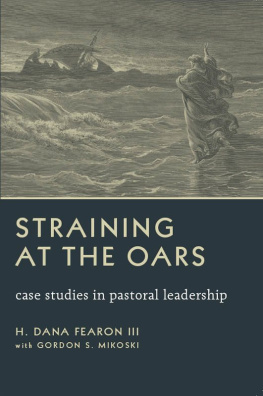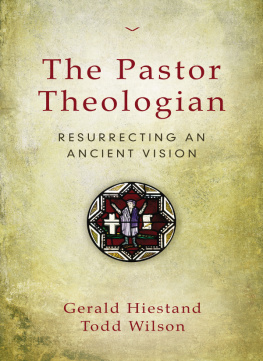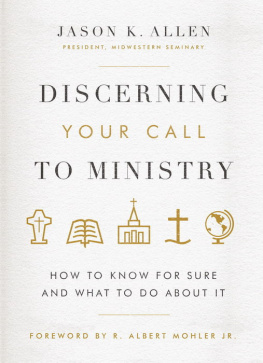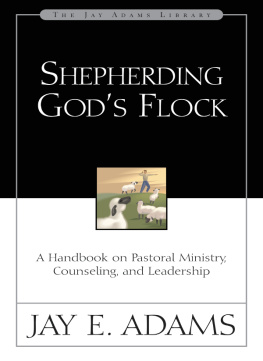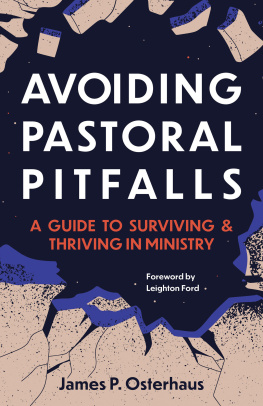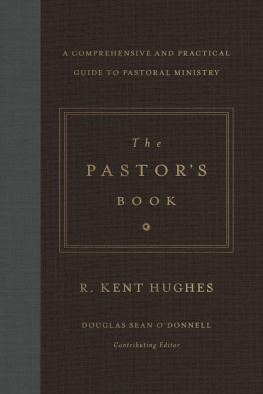Straining at the Oars
Straining at the Oars
CASE STUDIES IN PASTORAL LEADERSHIP

H. Dana Fearon III
with
Gordon S. Mikoski
William B. Eerdmans Publishing Company
Grand Rapids, Michigan / Cambridge, U.K.
2013 H. Dana Fearon III and Gordon S. Mikoski
All rights reserved
Published 2013 by
Wm. B. Eerdmans Publishing Co.
2140 Oak Industrial Drive N.E., Grand Rapids, Michigan 49505 /
P.O. Box 163, Cambridge CB3 9PU U.K.
19 18 17 16 15 14 13 7 6 5 4 3 2 1
Library of Congress Cataloging-in-Publication Data
Fearon, H. Dana, 1931
Straining at the oars: case studies in pastoral leadership /
H. Dana Fearon III, with Gordon S. Mikoski.
p. cm.
Includes bibliographical references.
ISBN 978-0-8028-6866-4 (pbk.: alk. paper)
ISBN 978-1-4674-3746-2 (epub)
1. Pastoral theology. I. Mikoski, Gordon S. II. Title.
BV4011.3.F43 2013
253 dc23
2012032135
www.eerdmans.com
Contents


A FEW YEARS AGO I met with a group of ministers who had been pastoring for three to five years and were enrolled in a continuing education program at Princeton Seminary. One of them said, Why didnt the seminary teach us the things we needed to know? I reflected upon the difference between my seminary education and the learning I experienced in the church, and understood what lay behind this question.
On reflection, however, I think this is a misleading question. There are some things a seminary cannot teach. The variety of pastoral, organizational, and community demands; the layers of congregational history; and the subtle expectations of the congregation cannot be anticipated in the classroom. We cant learn how to be pastors until we are actually doing the work and living the life. The work is too complex, unpredictable, layered, subtle, stressful, surprising, and demanding. There is far more art to be learned from experience than there is science to be learned in the classroom.
Unfortunately, ministers are leaving the pastorate in worrisome numbers. The Presbyterian Church (USA) Board of The Board of Pensions offers several possible reasons why seminary graduates are leaving the pastorate. Some might feel the pressure from large debts incurred in college and seminary and inadequate compensation from the churches they serve. Others experience loneliness and the absence of a mentor. The nature of the work itself is often stormy, and it is possible that inadequate preparation has led to this exodus. Of course, there are also vocational reasons for leaving seminary or the pastorate. Those in seminary might discover that their aptitude and gifts call them to a different work and service. Such people should be reassured that, as laity of the church, they have a ministry other than that carried out by ordained ministers.
Another reason for leaving the pastorate can be traced to a persistent complaint heard from seminary graduates. In seminary they did not prepare me for the pastorate. From Midterms to Ministry, a recent publication, documents this complaint.ministers receive and the awareness, imagination, and skills needed for pastoral ministry.
It is not altogether clear that all of the responsibility for this gap can be laid at the door of the seminary. In just three or four years it is difficult for a seminary faculty to address all the unexpected challenges and inherent difficulties encountered in the pastorate. When returning graduates complain that their seminaries did not prepare them for pastoral ministry, they quite possibly are reflecting an inadequate process of continuing education.
Seminary education is an essential starting point. We cannot learn on the job without a seminary education because that education provides us with a theological, historical, and pastoral way of organizing our thought and experience. I enjoyed a rich seminary experience, and took into the pastorate both a more enlightened biblical imagination and a profound respect for Reformed theology as a frame of reference for living. In particular, it was through the words of James Muilenburg of Union Theological Seminary, the thundering voice of the prophets, that I became aware of the presence of God in the history of Israel. That theme was the map that led me through the Bible. At New College Divinity School in Edinburgh, I heard James Stewart make the fieriness of the apostle Paul come alive as the cold rain beat against the classroom windows, and I felt the promise of words written by that man whom Christ had made a new creation. In seminary, we struggled with the mystery of Christ as Son of God and Son of Man, and then pondered the early church theologians as they wrestled with an understanding of the Trinity. In our minds eye, we watched Martin Luther nail his theses to the church door in Wittenberg and heard him preach about the free grace of God. In the classroom, Chris Beker taught us to interpret Romans and Paul Scherer taught us to preach it. Reinhold Niebuhr used the lessons of early-twentieth-century laissez-faire capitalism to show us the evil of avarice and examined the Cold War to illustrate the collective sin of self-satisfied piety and witch-hunting patriotism. Nor, but for the seminary, would we have sat in the Common Room at Union Theological Seminary on Sunday evenings and hung on every word as Henry Sloan Coffin spoke of the church with humor, wisdom, theological conviction, biblical insight, and pastoral sensitivity. He connected the dots between our theological learning and the pastoral situations we would likely encounter.
Once in the parish, the journey requires the help of colleagues, mentors, faithful church members, and teachers in continuing education programs who know from their own experience what it is all about. Making the connections between the seminary education and the life and role of the pastor still remains the central challenge.
If the question, Why didnt the seminary teach us the things we needed to know? is not the right question, then what is? A more helpful question, I think, is: In seminary, what can we talk about that will help us minister? I recommend exploring in seminary four aspects of the ministers life and work.
The first aspect is listening to peoples stories. A course in ecclesial sociology (if it can be called that) would not only help us to appreciate that the congregation has been there longer than we have and has reasons for what it does and believes, but also could inform us about the new culture we have entered. Stories about baptisms, marriages, funerals, and the saints of the local church would reveal how that particular church was formed, responded to crises, handled conflict, met challenges, lived with failures, and grew its own solutions. Even if most of what we heard was laden with nostalgia, hints of a new mission for the church might lie in these stories. If we are perceptive, we can link the congregational tendencies to avoid the demands of the gospel with the broader culture of the nation, and point to the call of the Christian faith to take on problems that afflict so many of us. By listening, we can also learn to examine the community with a sociological mind-set. Uncovering data about housing, employment, schools, recreation, hospitals, nursing homes, police, social workers, how the church is perceived in the community this is all the homework of a pastor. In seminary we cannot do that homework, but we can talk about how to do it. Finally, using theology as a diagnostic tool can be illustrated in the classroom. Asking how the ancient creeds explain current misunderstandings and heresies, seeing the approach of God to the women in the Old Testament, listening to the spiritual wisdom of Teresa of vila, learning of the challenges of Christianity in the global world these can help us minister at a depth that opens eyes and ears to the sovereignty of God rather than providing a leadership that seeks the latest fad.

